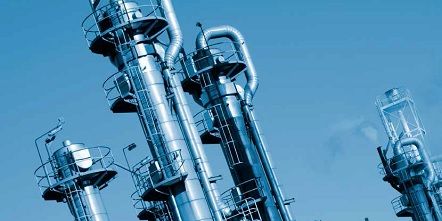Coronavirus, oil price war portend tougher times for petrochemical firms.

Petrotahlil -It’s just the first quarter and the world has had a two-punch blow that could knock it off a growth path in 2020, casting a gloomy spell on the petrochemical industry as consumption could take a longer time to recover.
An epidemic and an oil price rout make such an unhealthy combination afflicting the world economy that the usual antidote of cash injections to boost immunity may just not work as effectively as before.
Hopes for economic stimulus measures have somewhat calmed the markets on Tuesday, but prospects of a global recession will keep any grain of optimism in check.
The situation appears more dire than the last global financial crisis about 12 years ago, as the world is dealing with a deadly novel coronavirus epidemic that just likely put brakes on China’s first-quarter growth and continues to pound business confidence, coupled with a brewing oil price war that could lead to deflation.
Crude futures on 9 March shed 24% - their single-biggest decline since the Gulf War in 1991 - to their four-year lows as oil giants Saudi Arabia and Russia, instead of agreeing to a further cut in crude output, decided to boost crude production in an already oversupplied market.
Spot prices of key petrochemicals sank to new lows on the same day as prospects of demand recovery dimmed.
“Usually, when crude prices collapse, there are winners and losers … But not this time. The fall in oil prices is combining with a collapse in demand probably bigger than in 2008,” ICIS senior Asia consultant John Richardson said.
“The coronavirus crisis has led to a major drop in economic activity globally, thereby reducing the stimulus to spending that normally results from cheaper fuel costs. There is little effective stimulus because people are stuck at home in self or state-imposed quarantine,” he said.
While the sharp decline in crude price meant better margins for Asia’s naphtha-based producers, poor demand and an oversupply will prevent them from ramping up production.
“For the petrochemicals business, a collapse in crude prices under normal circumstances boosts the competitiveness of naphtha cracker operators through lowering their cost of feedstock. Cheaper feedstocks then lead to cheaper polymer prices which act as a boost to demand,” Richardson said.
“But the same dynamic that is playing out in fuels markets is adversely affecting polymers demand,” he said.
Draconian epidemic-containment measures - with cities on lockdown and severe restrictions on people movement - adopted in China in late January at the onset of the deadly coronavirus outbreak from the central city of Wuhan, took a heavy toll on its manufacturing and services sectors, and disrupted the global supply chain in February.
Petrochemical downstream plants were gradually ramping up production in March.
“In China, it does appear as if its economy is getting back to work … So, from hereon in, sales in China should improve, provided there is no secondary rise in the number of [coronavirus] cases,” Richardson said.
China’s daily increase in coronavirus infection was substantially lower compared with February’s, indicating that it has peaked, but elsewhere in the world, confirmed cases are spiking.
In Europe, Italy's government issued a nation-wide lockdown as coronavirus cases surged above 9,000 with a death toll of over 460. The country has the highest death toll from the flu-like epidemic next to China.
Globally, the total coronavirus cases stood at above 114,000 with the death toll at more than 4,000 - most of which are in China.
In the Middle East, confirmed coronavirus cases were highest in Iran; while in Asia, South Korea has the highest rate of infection - both at above 7,000.
The consequent slump in global demand meant further downward pressure on commodities markets, and a major drag on investor sentiment as evidenced by the wiping out of billions of US dollars from global bourses in recent days.
For oil, the International Energy Agency (IEA) is projecting a first-in-a-decade contraction in global demand, with 2020 consumption expected to fall by 90,000 bbl/day from 2019.
“The broader issue is that the collapse in oil prices has been accompanied by major declines in stock markets. There is no doubt, in my view, that we are heading for a global recession – and, quite possibly, a debt-repayment crisis because of the huge scale of debts built-up since the [2008] Global Financial Crisis,” Richardson said.
Amid the turmoil on all fronts, “petrochemicals companies will need to place close attention to their credit risks whilst ensuring that they have adequate lines of lending from their banks”, Richardson said.
“And we might see a wave of mergers and acquisition activity, especially in the US where energy companies are highly leveraged. But this will likely take a while long as valuations still have a long way to fall,” he added.
Follow us on twitter @petrotahlil
Source : ICIS
END





